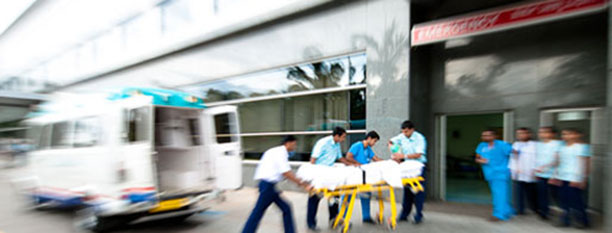If you are feeling anxiety, fear, guilt, confusion, anger, depression or just drained of energy after you have been diagnosed with a heart problem – you’re not alone. It is extremely common for individuals to experience emotional disturbances when their routine life gets shaken up by a cardiac problem.
Questions often arise in our minds when a sudden health calamity strikes. While some of them have straightforward answers, some questions can only be answered with passage of time and especially after tiding over the acute phase.
Worries are to be expected. It is only natural that you are worried about your health and the thought about what is in store for you.
Your needs will vary depending on your health condition, your age, your social support and other factors, but everyone has needs that must be addressed by the healthcare team.
Let us see what emotions two of our patients felt.
As seen in the picture above, Mr. Arun (name changed) was rushed to the emergency department directly from his office within 30 minutes of the start of acute chest pain. He was 44 years old, married and had 2 young children. He was working in a multinational IT company as a project lead. He had never had a health check before this episode and was paranoid about what the doctors are going to say. He was diagnosed with a heart attack due to a severe block in an important coronary artery and advised angioplasty immediately.
Why me? Is this the end of my career? Will I live to see my daughters grow up? Can my block be reversed? …. These are just a few questions running through his mind prior to angioplasty.
Another individual, Mrs. Neela (name changed) was in her 70s and taking treatment for diabetes and hypertension when one day she suddenly collapsed to the ground while climbing stairs at home. Her maid who was at home at that time did not know what to do, panicked and called the family doctor’s phone. He promptly alerted the ambulance and instructed the patient to be admitted to the emergency department. The first aid crew in the ambulance provided CPR and successfully revived the lady. She was diagnosed with severe heart failure (Ejection Fraction 22%) and was initiated on multiple medications. Mrs. Neela was better within a week but she had several questions, concerns and unaddressed needs.
How do I prevent a future collapse? What should my caretakers do if I collapse? How can I improve the function of my heart? How often should I see the doctor? Can I carry out my daily duties?
This is where a cardiac rehab team comes into the picture. By providing answers to health-related questions, alleviating worries and offering evidence-based guidance and advice, our team of healthcare professionals work side by side with the doctors and nurses in the hospital, to establish a rapport with the patients and their family members. They provide ongoing emotional support during the hospital stay, the recovery period and most importantly during the intensive rehabilitation period of 3-6 months after the disease sets in.

